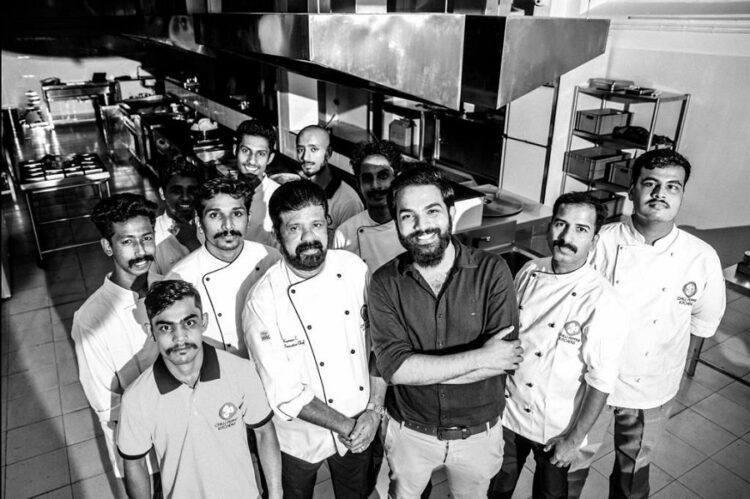By Bharath Ajith Sreenivasan
Kerala, often hailed for its progressive social indicators and tourism-friendly policies, is undergoing a quiet yet transformative labour shift. At the heart of this evolution lies a workforce often overlooked in policy discussions and industry showcases – domestic migrant workers, particularly those serving in the hospitality sector.
This feature explores the socio-economic impact of migrant labour in Kerala’s hospitality industry, drawing from a study involving 40 migrant workers across key sectors such as construction, tailoring, domestic work, and notably, hotels and restaurants. Through field research, data analysis, and insights from ground-level interviews, we explore how these workers shape Kerala’s service economy while grappling with systemic neglect and vulnerabilities.
Kerala’s Labour Market Paradox
Known for its literacy, healthcare, and human development achievements, Kerala paradoxically suffers from a persistent shortage of unskilled and semi-skilled labour. The outmigration of Keralites to the Gulf and their disinterest in low-paying jobs has opened doors for new labour demographic – migrants from West Bengal, Bihar, Assam, and Tamil Nadu. These workers now form the backbone of industries ranging from construction to housekeeping and food service.
The hospitality sector, in particular, has quietly grown dependent on this migrant workforce, especially in roles that require long hours, physical labour, and modest wages – jobs that many locals increasingly avoid.
Mapping the Workforce: Who Are These Migrants?
A closer look at the data reveals key characteristics of this workforce:
- Demographics: Over 80% of respondents were men, predominantly aged between 19 and 45, representing a youthful and economically active segment.
- Education: Most had limited formal education -75% had studied up to 8th standard or less – yet displayed a high willingness to work in demanding conditions.
- Origins: The majority hailed from rural West Bengal, with agriculture and daily wage labour being their previous occupations – evidence of distress-driven migration.
- Religion: A mix of Hindu (57.5%), Muslim (30%), and Christian (12.5%) workers points to a diverse but socially cohesive workforce.
Inside Kerala’s Hospitality Sector: Migrants at Work
Migrant workers in hospitality take on essential but invisible roles – housekeeping, kitchen assistance, and service operations. Formal training is rare (only 2.5% received any), which mirrors the unstructured nature of recruitment and onboarding. However, some report better wages and working conditions compared to their peers in construction or tailoring.
- Wages & Hours: Daily earnings varied, with over half earning between ₹301 – ₹500 per day. Overtime was more common in hospitality, with extra pay rates surpassing ₹100/hour. However, long workdays (often exceeding 8 hours) are still the norm.
- Living Conditions: Shared housing -often cramped with 6 -10 individuals per room -is the standard. Access to clean drinking water and cooking gas remains limited, though hospitality jobs generally offer slightly better amenities than other sectors.
What Drives Migration? A Push and Pull Analysis
The study highlights poverty and job scarcity in source states as the main push factors. In contrast, Kerala’s higher wages, stable employment opportunities, and better living standards act as significant pull factors.
Hospitality work, while not always easy, is often perceived as more dignified and safer than construction. Additionally, many migrants cite respectful employer behavior and cleaner working environments as reasons for choosing hotel jobs over other sectors.
Financial Footprints: Remittances and Savings
Migration to Kerala is not just about survival; it is about economic transformation -both personal and familial. A significant majority (77.5%) use banks for remitting money, with 55% sending over ₹5,000 home each month. Their frugal lifestyles -often spending less than ₹100/day – enable them to maximize savings, funneling much-needed cash into rural economies hundreds of kilometers away.
Key Challenges: Gaps in Policy and Practice
Despite their contributions, migrant workers remain largely excluded from Kerala’s formal welfare mechanisms:
- Identity and Documentation: Only 2.5% of surveyed workers had Aadhaar cards issued in Kerala, limiting access to government schemes.
- Social Security: Health insurance and job security are virtually non-existent.
- Legal Representation: The informal nature of the hospitality industry means workers lack access to unions or formal grievance redressal systems.
- Cultural Integration: Migrants are often viewed as “temporary outsiders,” which hinders social assimilation and access to community support systems.
The Broader Impact: Urban Strain and Cultural Diversity
The increasing migrant population is adding pressure to Kerala’s urban infrastructure -particularly in cities like Trivandrum and Ernakulam – in areas like housing, sanitation, and public health. At the same time, migrants are also reshaping Kerala’s cultural landscape, introducing new languages, cuisines, and work ethics into local society. This is fostering a gradual multicultural shift, even if integration is slow.
The Road Ahead: Policy Recommendations
To address this complex issue, Kerala needs a proactive and structured approach:
- Establish a Migrant Workers Welfare Board
To oversee fair wages, safety standards, and welfare programs. - Mandatory Biometric Registration & ID Cards
To help track, support, and integrate workers within legal frameworks. - Skill Training for Hospitality Roles
Through partnerships with state-run training institutes and central schemes. - Public-Private Housing Initiatives
To ensure hygienic, affordable living conditions near employment hubs. - Community Integration Programs
Including language classes, cultural exchange events, and migrant support centers.
The Need for Inclusive Growth
Kerala’s hospitality industry – and by extension, its economy – is riding on the silent shoulders of migrant labour. Yet, these essential contributors remain undervalued, under protected, and under-integrated.
If Kerala’s globally admired development model is to remain equitable and sustainable, it must evolve to include migrant workers not just as labourers, but as participants in its socio-economic journey. The state faces a crucial choice: either to deepen its dependence on unregulated labour or to lead the way in building an inclusive, humane framework for migrant welfare


Mr. Bharath Ajith Sreenivasan is a law graduate from the prestigious National University of Juridical Sciences (NUJS), Kolkata, and a passionate entrepreneur at the intersection of food, law, and innovation. He is the Co-Founder and CEO of Chilli Pepper Gourmet Kitchens Pvt. Ltd. (CPGK), a pioneering cloud kitchen startup based in Trivandrum since 2021. Under Bharath’s leadership, CPGK has adopted a dynamic single-kitchen, multi-brand model, offering gourmet experiences through curated delivery brands such as Khao (Pan-Indian), Kappa Stories (Kerala cuisine), and Samurai Hanzō’s (Pan-Asian). With a strong focus on quality, consistency, and premium packaging, the venture aims to redefine the perception of takeaway and delivery dining in Kerala.
Beyond aggregator platforms, Bharath has steered CPGK into offline verticals including event catering, corporate partnerships, and direct customer engagement through takeaway and delivery. His efforts have earned the company several accolades, including: Metro Food Awards 2021 – Best Cloud Kitchen; EAT Awards 2022 & 2023 – Members’ Favourite for Best North Indian and Oriental Cuisine; Zomato Restaurant Awards 2023 – Best Chinese in Trivandrum; Bharath is also committed to community development and serves as a mentor for the Flyingdisc Development Foundation (Y-Ultimate), promoting youth engagement and leadership through sport. With a strong foundation in law and a creative spirit for business, Bharath continues to drive innovation in Kerala’s evolving food and hospitality landscape.
.















